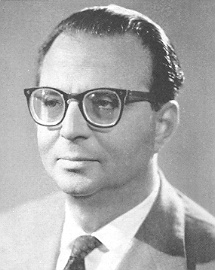Ugo La Malfa
|
Onorevole Ugo La Malfa |
|
|---|---|
 |
|
| Minister of Transports | |
|
In office 17 June 1945 – 8 December 1945 |
|
| Prime Minister | Ferruccio Parri |
| Preceded by | Francesco Cerabona |
| Succeeded by | Riccardo Lombardi |
| Secretary-general of PRI | |
|
In office 1965–1975 |
|
| Preceded by | Oddo Biasini |
| Succeeded by | Oddo Biasini |
| Personal details | |
| Born | May 16, 1903 Palermo, Sicily, Italy |
| Died | March 26, 1979 (aged 75) Rome, Lazio, Italy |
| Nationality | Italian |
| Political party |
Italian Republican Party (1946-1979) Republican Democratic Concentration (1946) Action Party (1942-1946) |
| Children | Giorgio |
| Residence | Rome, Italy |
| Alma mater | Ca'Foscari University of Venice |
| Profession |
Politics Journalist |
Ugo La Malfa (May 16, 1903 – March 26, 1979) was an Italian politician, and an important leader in the Italian Republican Party, of which his son, Giorgio La Malfa, is now president.
La Malfa was born in Palermo, Sicily. After completing his secondary schooling, he enrolled in the Ca' Foscari University of Venice in the Department of Diplomatic Sciences with professors Silvio Trentin and Gino Luzzatto.
During his years at the University, he had contacts within the republican movement of Treviso and other anti-fascist groups. In 1924, he moved to Rome, and participated in the foundation of the Goliardic Union for Freedom. On June 14, 1925 he took part in the first conference of the National Democratic Union, founded by Giovanni Amendola. The movement was later declared illegal under Mussolini's fascist government. In 1926 he graduated university with a thesis dealing sharply with human rights. During his military service, he was transferred to Sardinia in order to disrupt the anti-fascist publication Pietre, on which he worked. By 1928 he was among those arrested following the April 12 bombing in the Fiera di Milano for allegedly planning to assassinate Italian King Victor Emmanuel III only to be interrogated and released.
In 1929 he took a job editing the Treccani Encyclopaedia, working under the direction of the liberal philosopher Ugo Spirito. At the request of Raffaele Mattioli he took a job with Mattioli's Italian Commercial Bank in 1933, of which he became director in 1938. During these years, he showed his expertise in both economics and leadership. There he forged relations between anti-fascist groups in order to build a web that formed the Partito d'Azione, over which he presided as a founder. On January 1, 1943 La Malfa and the lawyer Adolfo Tino succeeded in publishing the first of their clandestine publication, L'Italia Libera. Later that year, La Malfa fled Italy to escape arrest, he went to Switzerland, where he had contacts with representatives of the British Special Operations Executive. With these he tried to organize a trip to London in order to play his personal influence at the Foreign Office. He tried to avoid Allied invasion of Italy and to obtain a negotiated Italian retreat from the war. Later he returned to Rome in order to take part in the resistance movement with the Partito d'Azione and the Comitato di Liberazione Nazionale.
...
Wikipedia
